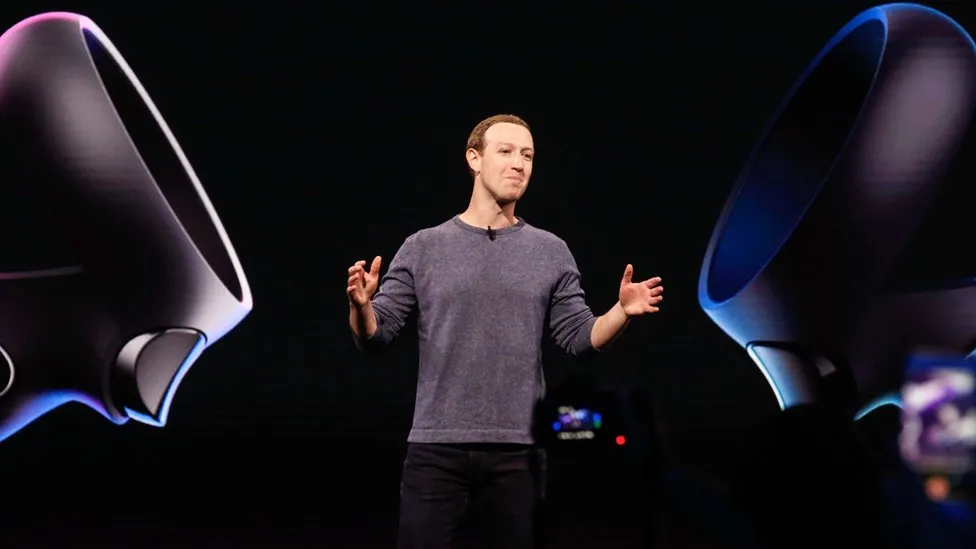Meta has unveiled a fresh lineup of chatbots destined for integration into its Messenger service. These chatbots are poised to possess distinct “personalities” and will specialize in various subjects, such as travel tips or culinary advice.
This development marks the latest episode in the fierce competition among tech giants, as they vie to enhance the accuracy and personalization of their artificial intelligence-driven chatbots.
Mark Zuckerberg, the head honcho at Meta, acknowledges that these chatbots are still a work in progress, accompanied by certain “limitations.” Speaking at Meta’s inaugural in-person event in California since the pre-pandemic era, Zuckerberg hailed the past year as “amazing for AI.”
The flagship chatbot, dubbed “Meta AI,” is set to be at the forefront of this initiative and can be utilized within messaging platforms. For instance, users can engage Meta AI to resolve disputes or field a range of queries.
It’s worth noting that the BBC has yet to put the chatbot through its paces, although it’s built upon Llama 2, a sizable language model that Meta released for public commercial use in July.
To add a dash of star power, several celebrities have agreed to lend their personas to various chatbots, including the likes of Snoop Dogg and Kendall Jenner. The overarching goal is to craft chatbots that extend beyond simple question-and-answer functions.
Zuckerberg emphasized, “This isn’t just about answering queries; this is about entertainment.”
Meta acknowledges that there are still many “limitations” regarding the scope of queries these chatbots can effectively address.
The deployment of these chatbots will commence in the coming days, with an initial focus on the United States.
Beyond chatbots, Zuckerberg also touched on the concept of the metaverse—a virtual world. Meta had previously announced its new virtual reality headset, Quest 3, and provided further details during the event.
Describing it as the first “mainstream” mixed reality headset, Zuckerberg highlighted the forward-facing cameras, which enable augmented reality experiences. This headset is slated to hit the market on October 10th.
Despite Meta’s hefty investments, its long-term bet on the metaverse has yet to yield significant returns, with its VR division experiencing losses totaling $21 billion since the start of 2022. This move follows Apple’s entry into the higher-priced mixed reality hardware market with the Vision Pro earlier in the year.
Mat Day, the Global Gaming Strategy Director for EssenceMediacom, commented that Mark Zuckerberg’s initiatives have breathed new life into the VR sector. Meta’s VR roadmap now squarely targets hardware aimed at the mass market, a departure from Apple’s strategy catering to high-end tech enthusiasts.
Notably, Meta’s announcement coincided with OpenAI, a Microsoft-backed entity responsible for ChatGPT, announcing that its chatbot can now browse the internet to offer users current information. Previously, the AI-powered system relied solely on data up to September 2021 for training.
RECOMMENDED ARTICLES
OpenAI launches web crawling GPTBot, sparking blocking effort by website owners and creators
AI Sex Chatbots, A New Trend Among The Dudes Who Love Them
